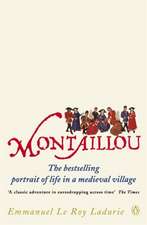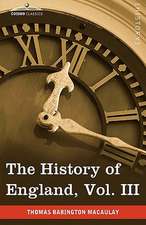The French Revolution
Autor Thomas Carlyleen Limba Engleză Paperback – noi 2022
| Toate formatele și edițiile | Preț | Express |
|---|---|---|
| Paperback (12) | 81.02 lei 11-16 zile | +37.75 lei 7-13 zile |
| OUP OXFORD – 24 ian 2019 | 81.02 lei 11-16 zile | +37.75 lei 7-13 zile |
| CREATESPACE – | 98.22 lei 3-5 săpt. | |
| CREATESPACE – | 131.40 lei 3-5 săpt. | |
| CREATESPACE – | 176.49 lei 3-5 săpt. | |
| CREATESPACE – | 191.18 lei 3-5 săpt. | |
| CREATESPACE – | 236.37 lei 3-5 săpt. | |
| Outlook Verlag – noi 2022 | 386.96 lei 18-23 zile | +35.54 lei 7-13 zile |
| Digireads.com – 8 mar 2020 | 169.02 lei 6-8 săpt. | |
| Echo Library – 19 feb 2006 | 249.35 lei 39-44 zile | |
| Cambridge University Press – 16 iul 2014 | 326.30 lei 6-8 săpt. | |
| Vij Books India Private Limited – 20 apr 2023 | 329.81 lei 6-8 săpt. | |
| Antiquarius – 25 oct 2020 | 334.61 lei 39-44 zile | |
| Hardback (1) | 442.13 lei 39-44 zile | |
| Antiquarius – 25 oct 2020 | 442.13 lei 39-44 zile |
Preț: 386.96 lei
Preț vechi: 455.25 lei
-15% Nou
Puncte Express: 580
Preț estimativ în valută:
74.04€ • 77.16$ • 61.31£
74.04€ • 77.16$ • 61.31£
Carte disponibilă
Livrare economică 10-15 martie
Livrare express 27 februarie-05 martie pentru 45.53 lei
Preluare comenzi: 021 569.72.76
Specificații
ISBN-13: 9783368400347
ISBN-10: 3368400347
Pagini: 504
Dimensiuni: 148 x 210 x 35 mm
Greutate: 0.72 kg
Editura: Outlook Verlag
ISBN-10: 3368400347
Pagini: 504
Dimensiuni: 148 x 210 x 35 mm
Greutate: 0.72 kg
Editura: Outlook Verlag
Descriere
Descriere de la o altă ediție sau format:
'It is I think the most radical Book that has been written in these late centuries . . . and will give pleasure and displeasure, one may expect, to almost all classes of persons.' CarlyleThomas Carlyle's history of the French Revolution opens with the death of Louis XV in 1774 and ends with Napoleon suppressing the insurrection of the 13th Vendémaire. Both in Its form and content, the work was intended as a revolt against history writing itself, with Carlyle exploding the eighteenth-century conventions of dignified gentlemanly discourse. Immersing himself in his French sources with unprecedented imaginative and intellectual engagement, he recreates the upheaval in a language that evokes the chaotic atmosphere of the events. In the French Revolution Carlyle achieves the most vivid historical reconstruction of the crisis of his, or any other, age.This new edition offers an authoritative text, a comprehensive record of Carlyle's French, English, and German sources, a select bibliography of editions, related writings, and critical studies, chronologies of both Thomas Carlyle and the French Revolution, and a new and full index. In addition, Carlyle's work is placed in the context of both British and European history and writing, and linked to a variety of major figures, including Edward Gibbon, Friedrich Nietzsche, George Eliot, John Stuart Mill, Hegel, and R. G. Collingwood.
'It is I think the most radical Book that has been written in these late centuries . . . and will give pleasure and displeasure, one may expect, to almost all classes of persons.' CarlyleThomas Carlyle's history of the French Revolution opens with the death of Louis XV in 1774 and ends with Napoleon suppressing the insurrection of the 13th Vendémaire. Both in Its form and content, the work was intended as a revolt against history writing itself, with Carlyle exploding the eighteenth-century conventions of dignified gentlemanly discourse. Immersing himself in his French sources with unprecedented imaginative and intellectual engagement, he recreates the upheaval in a language that evokes the chaotic atmosphere of the events. In the French Revolution Carlyle achieves the most vivid historical reconstruction of the crisis of his, or any other, age.This new edition offers an authoritative text, a comprehensive record of Carlyle's French, English, and German sources, a select bibliography of editions, related writings, and critical studies, chronologies of both Thomas Carlyle and the French Revolution, and a new and full index. In addition, Carlyle's work is placed in the context of both British and European history and writing, and linked to a variety of major figures, including Edward Gibbon, Friedrich Nietzsche, George Eliot, John Stuart Mill, Hegel, and R. G. Collingwood.
Recenzii
This edition makes the work decipherable in ways it otherwise isn't.
Excellent edition
Excellent edition
Notă biografică
David R. Sorensen is professor of English at Saint Joseph's University and associate director of its Honors Program. He is a senior editor of the Duke-Edinburgh Collected Letters of Thomas and Jane Welsh Carlyle (1970-ongoing), and has edited with K. J. Fielding, Carlyle's The French Revolution (Oxford, 1989) and Jane Carlyle: New Selected Letters (Ashgate, 2004), with Rodger L. Tarr, The Carlyles at Home and Abroad (Ashgate, 2004), and with Brent E. Kinser, Carlyle's On Heroes and Hero-Worship (Yale, 2013). He is co-editor of Carlyle Studies Annual and a founding director of the Victorian Lives and Letters Consortium (2011- ).Brent E. Kinser is professor of English and department Head at Western Carolina University. He is the author of The American Civil War and the Shaping of British Democracy (Ashgate, 2011), and the coordinating editor of The Carlyle Letters Online (Duke UP, 2007- ; ), the electronic edition of The Collected Letters of Thomas and Jane Welsh Carlyle (Duke UP, 1970- ), for which he serves as an editor. He is co-editor (with David R. Sorensen) of Carlyle's On Heroes, Hero-Worship, and the Heroic in History (New Haven, 2013) He is co-editor Carlyle Studies Annual and a founding director of the Victorian Lives and Letters Consortium (2011- ). Mark Engel is a professional editor and independent scholar. He has edited with Michael K. Goldberg and Joel J. Brattin, Carlyle's On, Heroes, Hero-Worship, and the Heroic in History (Berkeley, 1993) and with Rodger L. Tarr, Sartor Resartus (Berkeley, 2000).
Cuprins
Preface; Introduction; 1. Death of Louis XV; 2. The new age; 3. The notables; 4. The states-general; 5. The third estate; 6. To arms!; 7. Fall of the Bastille; 8. Revolution; 9. The Menads; 10. The King at Paris; 11. The army; 12. The clubs; 13. Mirabeau; 14. Flight of the King; 15. The constitution; 16. Europe; 17. The Jacobins; 18. The Marseilleise; 19. The Swiss; 20. The commune; 21. The September massacres; 22. The cannonade of Valmy; 23. Execution of Louis XVI; 24. Girondins and mountain; 25. The committees; 26. The new calendar; 27. Death of Marat; 28. Marie-Antoinette; 29. The reign of terror; 30. The feast of reason; 31. The new Paris; 32. Danton, no weakness; 33. Feast of the être suprême; 34. Robespierre; 35. Decline of revolution; 36. The army; 37. The whiff of grapeshot; 38. Finis; Appendixes; Index of proper names; Glossary.














